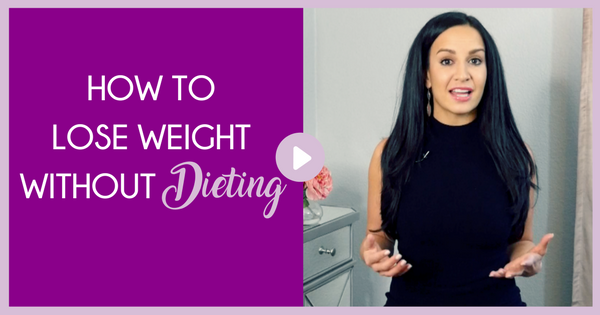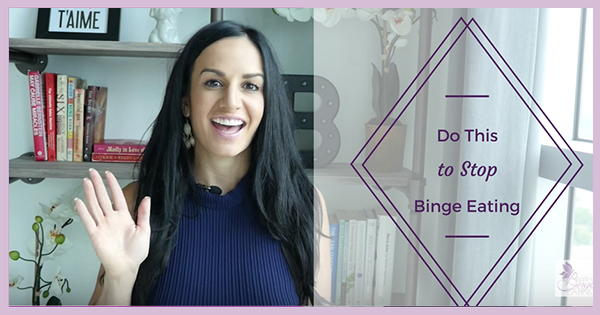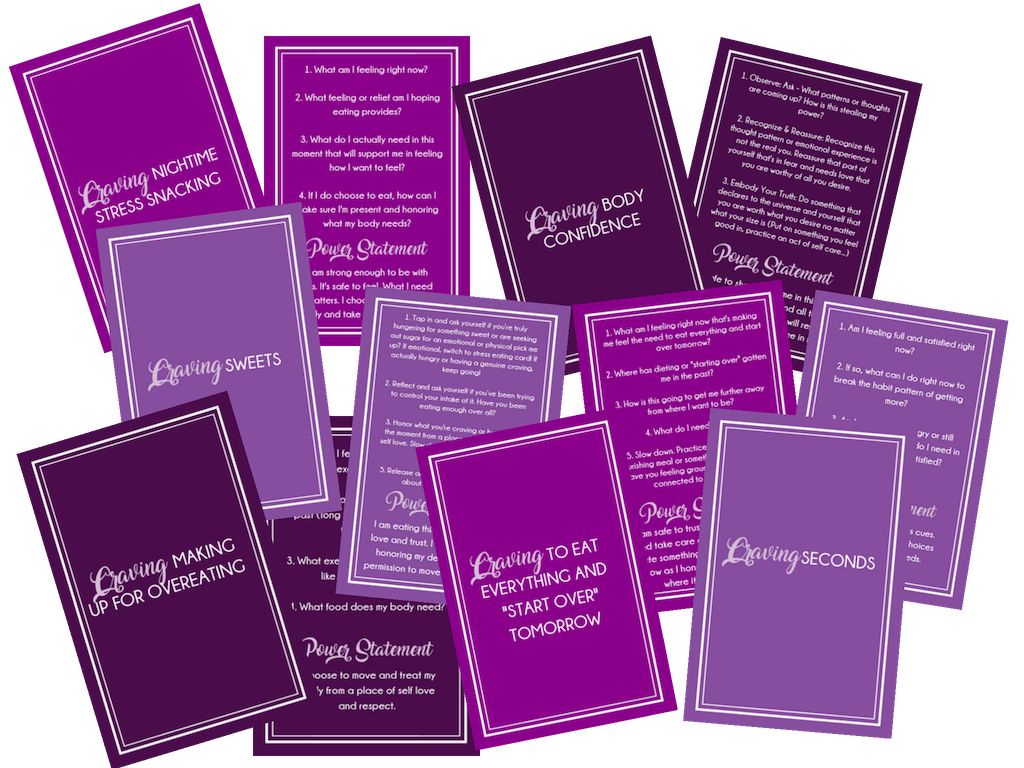I have to admit, I’m a little nervous to talk about this, but it’s been on my heart.
It’s about a widely used treatment for binge eating, and it comes in those little amber bottles from the pharmacy.
Today I’m sharing an important Public Service Announcement. It’s for healthcare professionals who prescribe appetite suppressants to patients who struggle with binge eating.
It’s also a call-to-action for patients who have tried it all, and worry that chemical intervention (i.e. drugs) is their last best hope.
The problem is that these drugs not only fail patients in the long run, but often leave them worse off than they were before they started.
Now, I’m not a doctor, nor do I claim to be one (on the internet or otherwise). As always, consult with your physician before deciding to take or not take medicine.
I’m sharing this because I’ve seen what happens when patients leave the doctor’s office and start taking these drugs in real life. No matter how well-intentioned these medications are, the results can be disastrous.
This is why I feel the need to share what I’ve witnessed, the real-world consequences of relying on pills to break free from binging.
I’m speaking not only as someone who has helped 1000s of others break out of the struggle. I’m also a former patient who fell prey to the nasty side effects of these drugs.
So to all of my well-meaning healthcare professionals and the patients who are on the brink of last-ditch efforts to break free of binging, this is for you…
–
–
Let’s start with a straight-up disclaimer. Not just in the name of “CYA,” (ahem!) but also in the name of my personal truth.
I’ve helped a lot of people. I’ve helped myself. I’m here to share my experience and my opinion. Take that for what it’s worth.
I don’t claim to know your situation. So before you make any changes to your healthcare, talk to your provider. Don’t quit your meds because I’m sharing my experiences and what I’ve seen–talk to your healthcare practitioner first.
If you’re a practitioner who prescribes these drugs in good faith, I know you mean well. I also get that you don’t usually see firsthand the aftermath of the chats you have with patients.
That’s why I’m sharing my behind-the-scenes insight. I want to help everyone make more informed decisions from here on out.
Cool?
OK. Let’s go all-in, and let’s start with appetite suppressants.
I started taking phentermine (medical appetite suppressant) when I was 19 years old.
Honestly, it made me feel like I was jacked up on a legal form of speed. Sure, it knocked out my appetite. But like any amphetamine-like drug, the crash always followed the high.
Not only did I feel those nasty hangover effects, but I was also ravenous for not having eaten all day. You can guess what that triggered me to do next…
Binge.
In addition to phentermine, there’s a laundry list of drugs that aren’t even intended for binge eating, things like antidepressants and anti-seizure drugs, that affect the brain a certain way and can (not always) suppress appetite and cravings.
Most patients who get them have neither seizures nor are they necessarily depressed.
But apparently, these drugs have enough of an appetite suppressant side effect that they’re being used for a whole new purpose.
Now, here’s the real question–do these stimulants, antidepressants, and seizure drugs honestly stop binge eating?
From what I’ve seen, these drugs are a band-aid at best. At worst, the repercussions associated with these meds throw the risk-benefit ratio way off center.
Let’s talk about the unintended consequences of binge-eating drugs.
Issue #1: False Hope. If you’ve been waking up each morning, afraid to face another day of deep suffering due to uncontrolled binging, these drugs might feel like the answer to your prayers.
I’ve been there. I get it.
You have a quick fix option available in the form of a pill, and your hope is back. Then you actually start taking it, and your hope starts soaring.
Many of these pills give you an instant burst of energy and mental clarity. For a moment, you feel not only energized, but also free from all-consuming food thoughts.
Sounds like the dream, right?
So you eat less food. You think the drug is working. But sooner or later, the buzz wears off.
Only then do you realize that your brain and body went into a starvation state without your knowledge.
You’re left feeling ravenous. You’ve got monstrous cravings. Not to mention a nasty crash from a short-lived buzz. That miracle cure you were so excited about has let you down, and let you down hard.
These drugs bypass the true causes of binge eating with a pill of false hope. But the backlash doesn’t stop there…
Issue #2: The Physical Effects. Binge eating is a battle, which creates perpetual stress in your system. Add in a stimulant drug or mind altering drug and it’s like pouring gas over the flames.
Binge eating ravages your endocrine system, your adrenal system, and your digestive system. These drugs then turn up the stress on your system by a factor of a thousand and make things even worse.
In the end, binging plus these drugs perpetuate the struggle that the drug was intended to relieve.
Issue #3: The Emotional Effects. Nobody likes to feel negative emotions. But the more you struggle against what you feel, the more those feelings will push back. Most of the time, it’s better to simply be with your emotions, and let them pass.
But not many of us make this a regular practice. Most of us choose to resist when things like stress and anxiety show up. The harder you fight to push down your feelings, though, the worse they get.
This makes you more likely to reach for food to quell the pain.
Now throw in a pill that jacks up your heart rate and stresses your system. What’s the result?
A hot mess of unresolved emotions and physiological overdrive. Not to mention more vulnerability to binging.
Issue #4: The Diminishing Returns. The effects of these drugs are typically short-lived. Believe it or not, those short-lived effects trigger long-term damage.
The longer you take the drugs, the more that your body builds up a tolerance to its effects. That’s when the even more chaos ensues.
The dose that you started with stops working. The inevitable crash comes. You’re left feeling stressed, irritable, and moody–and likely triggered into overeating to quell all of these heightened emotions.
It leaves you at a crossroads. Do you increase the dose on the drug that is causing these symptoms (but sort of works), or do you quit the drug altogether–and risk severe withdrawal reactions?
Turns out that there’s more to stopping binge eating than putting a temporary neurotransmitter block or a hit of speed in your system.
Now, these are the main reasons why appetite suppressants lead to epic fails. But there’s one more underlying factor that ties these issues all together…
These drugs are intended to stop you from eating. By their nature, they’re all about restriction. If you’ve been with me for a while, you probably know what I’m going to say next…
Restricting your food by any means only leads to more binging. These drugs not only force you to restrict your food, but they also bring vicious side effects into the mix.
They leave you starved for nourishment, irritable, and exhausted. They give you false hope and make you feel like a failure. All of this affects how you show up for yourself, your family, and everyone in your life.
Not worth it, in my opinion, for something that might curb a craving for a week or two!
Now, if you’re a practitioner who works with binge eating patients, I want you to know that I mean no disrespect. I know that you went into medicine to help people, and you believe that what you’re doing right by your patients.
But you might not know what happens long term once a patient gets home and actually starts taking the drugs that the treatment protocols advise.
You definitely won’t hear about it from a drug representative attempting to convince you to prescribe their latest miracle medication.
Know that we at Beating Binge Eating want to support you, and that’s why I’m sharing this message! I encourage you to connect with us and let us help you help your patients.
Now, if you’re a patient who is at the end of her rope with binge eating, and you believe that drugs are your last best hope, I urge you to take a second look.
Look beyond the conventional methods. Then have an informed conversation with your health care professional before you take this kind of leap.
You deserve better than short-term results with long-term side effects. In my experience, this is all that appetite suppressants can ever provide.
If you’re ready to explore other alternatives, we are here for you!
Click the image below where I’ve got a special gift for you! We call them, “Craving Cards”, and they’re one of our most popular tools!
If you ever feel night time cravings, sugar cravings, the urge to just say “screw it I’m going to start my diet over tomorrow”, or like you need a little body confidence pick me up…
Just grab a card, go through the prompts, and shift it instantly!
Click the image above and let me know where to send them!
You’ll also get mini demo video training sessions for each card where I share how to use the cards and some of my best tips for food freedom forever!
With our Craving Cards and Demo Series…
You’ll learn how to stop cravings in their tracks, feel confident, and get back your power, fast!
Love,
Brittany
PS: Want the exact freedom and ease with our foods that myself and thousands of our clients get to experience?
In our Beating Binge Eating Blueprint (BBEB), I show you how to make this happen in just 8 weeks!
Many of our students have seen a DRASTIC difference in as little as a few days!
It’s our signature program, and up until recently, it was $3000 or more to join.
For now, you can get it as a part of our Food Freedom Collection for practically free by clicking the image below!
There is no catch…every resource I’ve created for food freedom and body confidence will land straight in your if you just click that image below and let me know where to send it!













Leave a Reply
You must be logged in to post a comment.